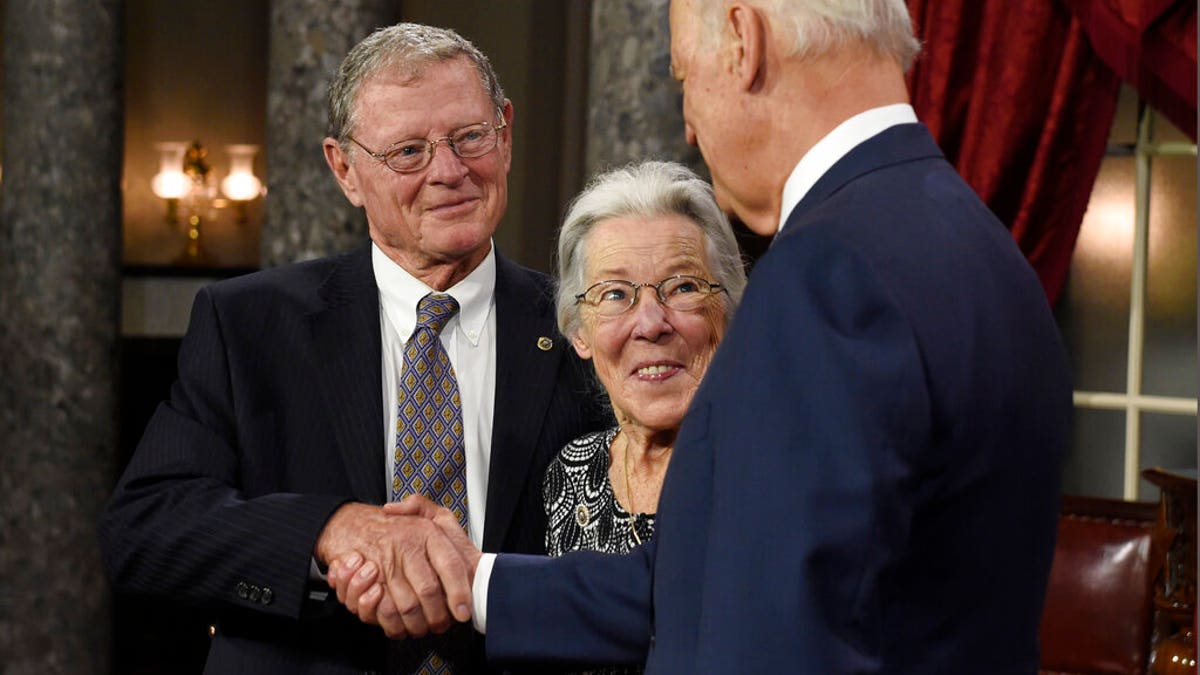Fox News Flash top headlines for Jan. 22
Fox News Flash top headlines for Jan. 22 are here. Check out what's clicking on Foxnews.com
Sen. Jim Inhofe, R-Okla., said Tuesday that his wife, Kay, had suffered a "minor stroke" last week but is "progressing nicely."
Inhofe, who missed the first day of the Senate impeachment trial of President Trump because of his wife's health scare, said he received a call at 2 a.m. while he was in Washington, D.C., and returned to his hometown "as soon as I could."
The 85-year-old senator, who has been married for 60 years, said his wife is undergoing rehabilitation and "there was no damage done," according to reports by the Tulsa World newspaper.

In this Jan. 6, 2015 file photo, Vice President Joe Biden shakes hands with Sen. James Inhofe, R-Okla., accompanied by Inhofe's wife Kay, center, after taking the Senate oath during a ceremonial re-enactment swearing-in ceremony in Washington. Inhofe's wife, Kay, suffered what he described as a mild stroke last week, causing him to miss the first day of impeachment trial proceedings, Oklahoma's senior U.S. senator said on Tuesday, Jan, 21, 2020. (AP Photo/Susan Walsh File)
Inhofe returned to Washington, D.C., on Tuesday at the start of the trial but remained seated at the desk of Sen. Cory Gardner, R-Colo., near the cloakroom rather than his usual seat toward the front of the Senate chamber, in case he needed to make an emergency exit.
He told the newspaper he plans on voting to acquit Trump of the two charges lodged against him, which include obstruction of Congress and abuse of power, “in the absence of something I have not heard before.”
CLICK HERE FOR THE FOX NEWS APP
Inhofe said he did not think the charges amounted to impeachable offenses, despite the findings by the General Accountability Office -- a nonpartisan watchdog group -- that determined the president broke the law by withholding military aid from Ukraine in order to pressure the foreign government to investigate 2020 presidential candidate Joe Biden and his son Hunter Biden.
Inhofe said he plans on asking questions throughout the duration of the trial.













































